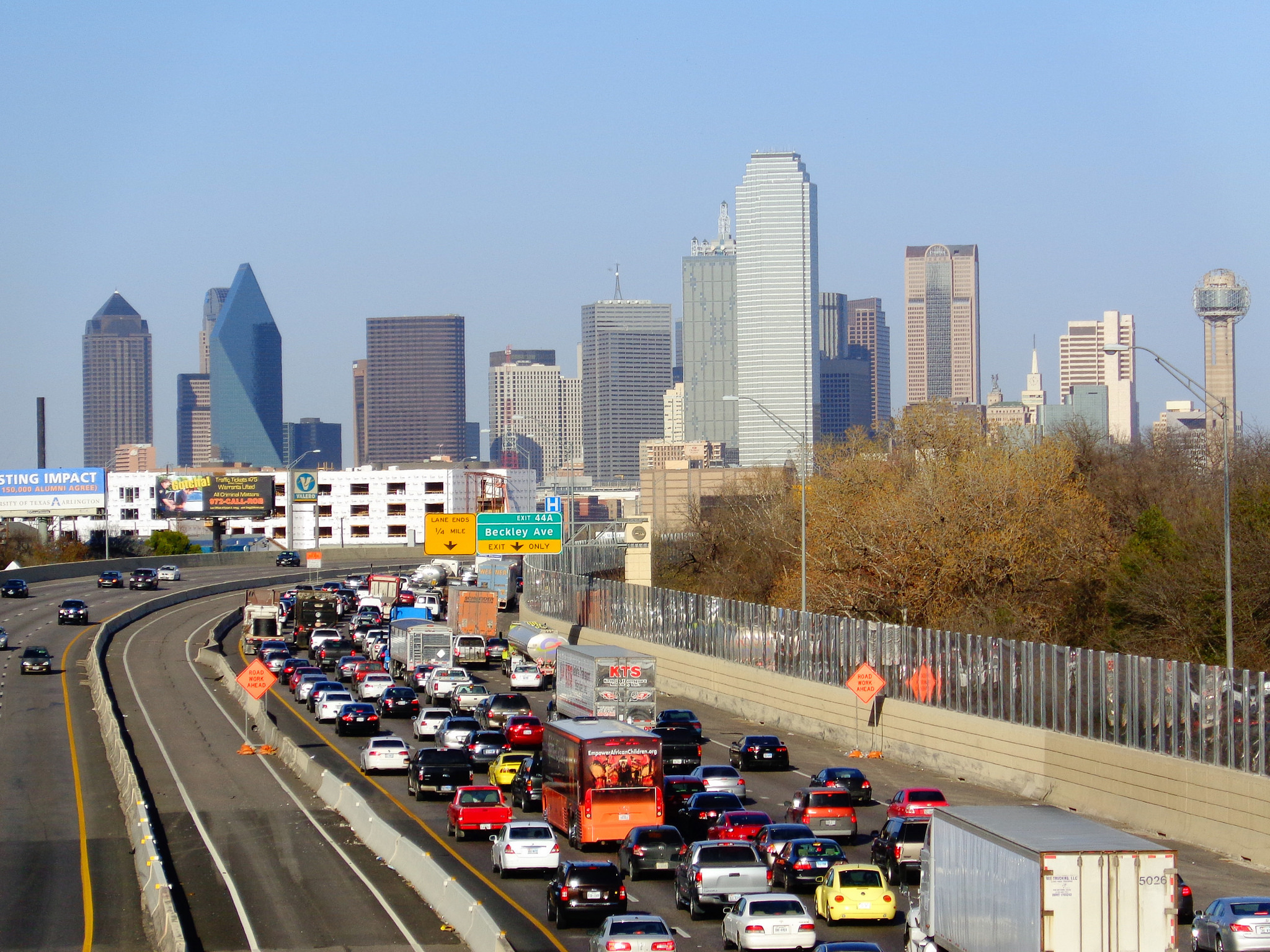When people wonder why Dallas is such a car-dependent city, the answer they often receive is that Dallasites love their cars. Dallas is car-dependent because Dallas has a strong car culture. But what if our dependence on the automobile went beyond culture. What if car dependency is actually written into the country’s legal framework?
In this article in the Atlantic—a distillation of a more in-depth academic analysis—Gregory Shill, an associate professor at the University of Iowa College of Law, argues that, since the advent of the automobile, laws have been written and rewritten to enshrine our dependence on the car in the legal system. The implications of this go beyond mere transportation preference. It ensures that we live in a country that accepts thousands of car-related deaths every year as a simple fact of life:
[O]ver the course of several generations lawmakers rewrote the rules of American life to conform to the interests of Big Oil, the auto barons, and the car-loving 1 percenters of the Roaring Twenties. They gave legal force to a mind-set—let’s call it automobile supremacy—that kills 40,000 Americans a year and seriously injures more than 4 million more. Include all those harmed by emissions and climate change, and the damage is even greater. As a teenager growing up in the shadow of Detroit, I had no reason to feel this was unjust, much less encouraged by law. It is both.
Shill’s argument goes beyond the usual observations that public expenditures on mobility infrastructure vastly favor automobiles. “Land-use law, criminal law, torts, insurance, vehicle safety regulations, even the tax code—all these sources of law provide rewards to cooperate with what has become the dominant transport mode, and punishment for those who defy it,” Shill says.
Let’s start with land use. As we have been recently discussing, single-family zoning ensures that most of the livable space in the U.S. is car-dependent–upwards of 75 percent of land in the U.S. is zoned for car-dependent, single-family homes. Then there are laws that require developers to provide parking spots for housing and office space. “In large part because of parking quotas, parking lots now cover more than a third of the land area of some U.S. cities,” Shill writes. “Houston is estimated to have 30 parking spaces for every resident.”
Next, there’s the tax code. Because of the way both zoning and home financing works, Americans looking to take advantage of the mortgage-interest tax deduction drift towards purchasing large houses in car-centric areas. There are also tax deductions available for parking, and tax rebates for drivers who switch to hybrid or electric cars. There are no tax benefits available to those who walk or bike to work.
Safety regulations also favor drivers over the pedestrians they may run over. Safety rules for car manufacturers focus on protecting drivers in cars rather than the pedestrians those cars may crash into. Insurance requirements for bodily injury coverage are often too low. There are also laws in place that force local governments in some states to raise speed limits and prohibit them from lowering speed limits. Speed limits are set by a metric that rewards higher speeds, establishing limits based on speeds that an estimated 85 percent of drivers will obey. That basically assumes that 15 percent of drivers will drive faster than the speed limits. “Imagine a rule saying that, once 15 percent of Americans acquired an illegal type of machine gun, that weapon would automatically become legal,” Shill says.
Criminal law Tort law also holds drivers to a lower standard.
“Courts have held that a higher standard—strict liability, which forces more careful risk taking—does not apply to driving. Strict liability is reserved for activities that are both “ultrahazardous” and “uncommon”; driving, while ultrahazardous, is among the most common activities in American life. In other words, the very fact that car crashes cause so much social damage makes it hard for those who are injured or killed by reckless drivers to get justice.”
Shill ends his piece with an attempt at hopefulness. Each area of the law he identifies as unfairly favoring automobile travel—which is responsible for 40,000 deaths a year—offers an opportunity for reform. But the main takeaway from the piece is a keen observation that car dependence goes far beyond cultural and infrastructure investment.
“Instead of merely accommodating some people’s desire to drive, our laws essentially force driving on all of us—by subsidizing it, by punishing people who don’t do it, by building a physical landscape that requires it, and by insulating reckless drivers from the consequences of their actions,” Shill writes. “Americans customarily describe motor-vehicle crashes as accidents. But the harms that come to so many of our loved ones are the predictable output of a broken system of laws. No struggle for justice in America has been successful without changing the law. The struggle against automobile supremacy is no different.”
UPDATE 7/22: Shill writes to explain some of the confusion in the comments below. The section concerning negligence and strict liability relates to tort law, not criminal law, as I originally reported:
It actually relates to a different body of law, tort law, where negligence (not strict liability) is the standard of liability for car crashes. Interested readers can find the original discussion of tort law in the Atlantic article, and an extended discussion at pp. 71-72 of the current draft of the forthcoming academic article on which the Atlantic piece was based. (That article also discusses some of the criminal law issues involved, at pp. 6-33 and 73-74.)





